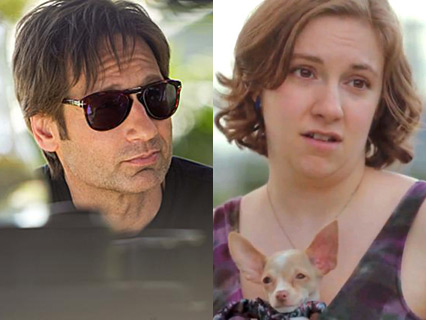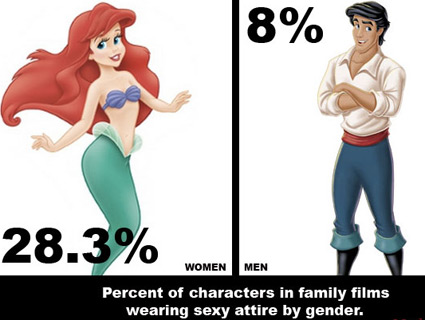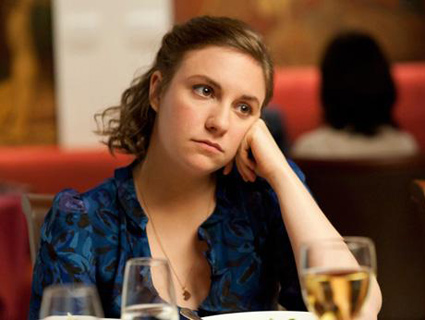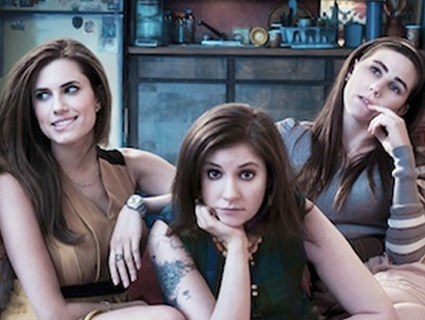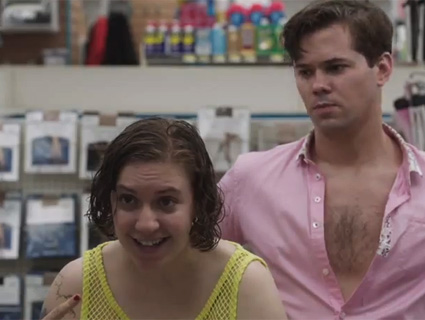
HBO
Amidst a busy week at the Mother Jones San Francisco office, five of us gathered late-night, burritos in hand, to watch a sneak preview of Season 2 of Girls. Despite all being twentysomethings and female, not all of us feel like we can identify with main characters Hannah (Lena Dunham), Marnie (Allison Williams), Jessa (Jemima Kirke), Shoshanna (Zosia Mamet), and the others portrayed in this series about friendship, sex, and ambition in New York City. (Zaineb Mohammed warned us at the start that she hate-watches the show.) Nevertheless, we couldn’t let DC-based film critic and infamous naysayer Asawin Suebsaeng be the sole proprieter of MoJo‘s critical take on Girls. (See his takedown of Season 1, former MoJo fellow Maya Dusenbery‘s response, and his slightly less acidic takedown of Season 2—though he still considers the show “a crime against humanity.” Really, Swin?)
We weren’t blown away by the first episode. But sit tight. The series gets better—full of sharp dialogue and humor, awkward intimacy, experimentation with love and drugs, and self-realization or lack thereof—by the fourth episode. Swin thought some of those less glamorous moments came off sleepy: We felt that, even when imperfect, they were thought-provoking—and, at the very least, refreshing. (As Sarah Zhang put it: “Yes, thank you, awkward parties!”). And as you’ll see below, the show is fodder for great debate, which in itself makes it worth a view. (Warning: minor spoilers sprinkled throughout).
Maggie Severns (editorial fellow): One thing is clear from the opening scene of Season 2: Despite being “the voice of a generation,” Lena Dunham is telling her story, not everyone’s story. This will disappoint those who wanted to see themselves (and their fears and fantasies, which are—let’s face it—what make Girls so fun to watch) better represented in the show. What we will get is more sex, misadventures with drug use, and a great portrayal of female friendships, which are rarely captured well on TV.
Donald Glover’s character, Sandy, is a case in point. The first episode of the series introduces him as Hannah’s boyfriend, but he’s gone fast. I don’t think she included one, short-lived minority character as an F-you to her critics, but Glover’s immediate entrance and fast departure (which clearly indicate that he was written into the show) sends a clear message that Girls skeptics do not control the writers’ room.
Zaineb Mohammed (editorial fellow): I found Glover’s character to be a disappointment in many ways. While parts of his conversations with Hannah feel very realistic (and flawed), the choice to have him fall so far outside of type felt like a cautious one, and a way for Dunham to safeguard herself against criticisms of how she is portraying a black man.
If Glover is the only character of color to appear on the show all season, I don’t know how much Dunham truly took to the criticisms she heard about diversity last season. Also, while some might see it as bold that she chose to write for a young black man, I was disappointed not to see a woman of color in these first few episodes
Maddie Oatman (research editor): To me that brings up the question: How far should writers go to incorporate the whole rainbow, and when does it start to become forced? There’s a conversation in the second episode that deals with race quite well, though, I think we all agreed. Or at least, reveals the characters’ ignorance or naivete about race
Maggie: I loved that conversation—I thought she nailed it.
Hannah Levintova (editorial coordinator): I don’t think writers can incorporate the whole rainbow. And I don’t think Dunham is trying to. When it comes to class and economic privilege and whiteness, Dunham owns her experiences. Ever since hints of the first season trickled out, it’s been billed as a show that just “gets” the contemporary young female experience in some visceral way. Which is impossible. No one can speak to everyone’s experiences. And the fact that the load was placed on her show is more a reflection of where media stands today than anything else—why don’t more shows do what Dunham’s trying to do? Develop complex, true-to-reality (whatever specific realities those may be) females?
Sarah Zhang (senior editorial fellow): Zaineb, I hear ya on the criticism of Hannah’s black Republican boyfriend. But I can’t help but wonder if this is a case of damned if you do, damned if you don’t. A character played to type would just enrage the critical horde who want to hate on a token black character.
Zaineb: I guess I wish she had taken on the challenge of a character somewhat played to type with nuance. Really, it’s just that she writes boldly for young women, and I’m disappointed she doesn’t mine the complex relationships between white women and women of color. I think if she had some diversity on her writing staff, she could do it really well.
Sarah: I thought the decision to make her boyfriend a Republican was really, really smart. By diversity, we so often mean skin-color, which is a limited definition of diversity. Why shouldn’t diversity of viewpoints and political beliefs be something we care about too? For a young liberal living in New York, you’re even less likely to be have Republican friends than nonwhite friends.
Maddie: And we see Hannah pretty much fail at embracing Sandy’s diversity of viewpoint, but the show is quick to underline this failure. How do you think Season 2 deals with the criticism that the show is just about, and for, the privileged?
Sarah: Direct shout-outs to Sex and the City aside, I’ve always thought that Girls represents a sort of New York fantasy—a fantasy where you can be kind of a screw up in your 20s but, eventually, it’ll work out because these are four pretty privileged white girls. That underlying sense of “it’ll be okay” started to fall away this season.
Hannah and her friends may not be talking about privilege out loud, but Girls does deal with money head on. And money might just be the hardest thing to discuss honestly with friends. (Who owes whom? Who’s floating whose rent?) My conversations about money always happen in hushed, awkward tones…when I’ve been unsuccessful in avoiding them.
Hannah: Here, though, the conversations don’t feel nearly as stress-laden as I think they often are in reality for cash-strapped twentysomethings. Though the Jessa and TomJohn plotline hits on some financial real-talk. But the drugs episode felt a little absurd to me moneywise. (Spoiler alert.) How does a coffee shop employee buy hundreds of dollars worth of cocaine?
Zaineb: The conversation between Hannah and Marnie about their respective jobs is also interesting because Hannah brings up the importance of making money in an “honest” way that’s not selling out.
Sarah: I do think Girls is mining novel TV territory with female beauty and (I hate to use this term but) “erotic capital.” Hannah goes off on Marnie for getting a pretty-person job and then she accepts coke from a guy who has a crush her—for her job, may I add?
Maggie: Let’s pause on Marnie for a second. I didn’t use to like Marnie but I LOVE her this season; I think her downward spiral has really humanized her. I feel like I get her now. Except she needs to get a real job again; she isn’t nearly freaked out enough about being thrown off her career track (since she is Career-Driven Spice, so to speak).
Zaineb: I love Marnie’s awareness of her beauty, and how much she loves it being acknowledged by others.
Maggie: I think that’s really smart. Looks are a huge factor for women in their 20s, like it or not.
Zaineb: I’d also really like to see a total downward spiral for Marnie, an “existential life crisis,” so to speak. She seems like someone who used to think she knew who she was, and no longer really does. It also comes out in her conversations with Hannah about their friendship, with her acknowledging that she actually is the selfish one.
Sarah: Yeah! It seems like Marnie always defined herself against Hannah as the one who has her shit together, but now that she doesn’t have that identity anymore, it’s making her lose her shit even more.
Maggie: Well, one thing Girls does well is parties. I just like that everyone isn’t always going to some awesome party where everything is awesome.
Sarah: Yes, thank you, awkward parties!
Zaineb: I think they did that way better with the Bushwick party than this new one though.
Maggie: Yeah the Bushwick party episode was maybe the best Girls ever. So the one thing we haven’t touched on I don’t think, is the MEN.
Hannah: I was about to say! Speaking of privilege, there are many kinds. And there is some intense male-privilege stuff happening this season, too. Men controlling women in ways that made me cringe. (Mostly because it often wasn’t clear to me how the women felt about what was going down.)
Maddie: The women in Season 2 are often being trapped by men: in apartments, art shows, during sex, in fancy houses, by in-laws. The overall feeling I got was that guys were there to use and manipulate women. If I were a dude, I might be pissed at how I was depicted (maybe that’s why Swin’s so hifey).
Zaineb: I think they took major steps backward with Adam, Hannah’s Season 1 boyfriend.
Maddie: Adam makes me think about how we are always trying to see the lighter side of people’s weirdness, but sometimes they are just plain disturbing, something’s a little loose with him.
Maggie: Agree, and I like it.
Zaineb: I believe Lena Dunham got some flack for how she wrote him at the beginning of last season, then she made him more nuanced, and now it feels like he’s lost that.
Maddie: He’s very unique—I can’t think of many other TV characters like him really.
Hannah: What do you all think of Booth, the artist Marnie has a crush on?
Maddie: He reminded me of a lot of overconfident assholes, I know.
Maggie: Agree! I feel the same way about Adam, though I’m undecided over whether Adam is ultimately an asshole or not.
Zaineb: When Marnie asks Booth, “Who do you think I am?” it really seems like she is searching for someone to tell her, and maybe she wants it to be him in that moment.
Maddie: What do you think this show is really trying to say about friendship? Because, sometimes I think it depicts female friendship as shallow, superficial, and ephemeral.
Maggie: Oh, I don’t think so. I think it just depicts twentysomething women as self-interested, self-absorbed, and no good at driving their own lives. I don’t think they mean to hurt each other, but everyone is too busy thinking about themselves sometimes.
Hannah: I agree that the show depicts that twentysomething, busy-trying-to-get-my-shit-together selfishness. But it also shows the women being self-aware of that egotism, and recognizing it as a bad thing. And the ways that Marnie and Hannah call each other out on that egotism feels raw and real.
Zaineb: And it’s true to life that those kinds of conversations are not friendship-destroying, I think.
Maggie: I don’t think that everyone is totally self-interested at the expense of their friendships, to be clear. I just think that self-interest can be a real driver for characters on the show—and most people in our 20s, who feel this pressure to evolve both personally and professionally before we settle down and have families to worry about.
Zaineb: Agreed. It’s a time in a lot of people’s lives when they tell themselves it is okay to be selfish.


